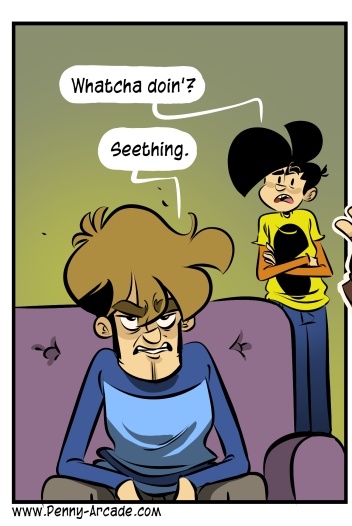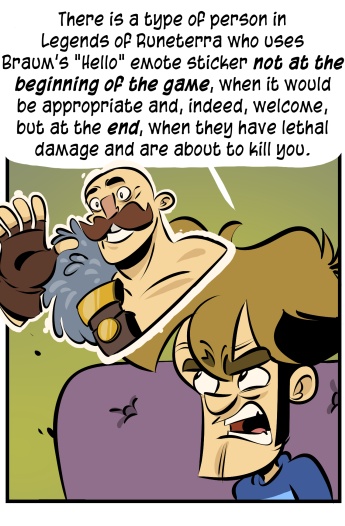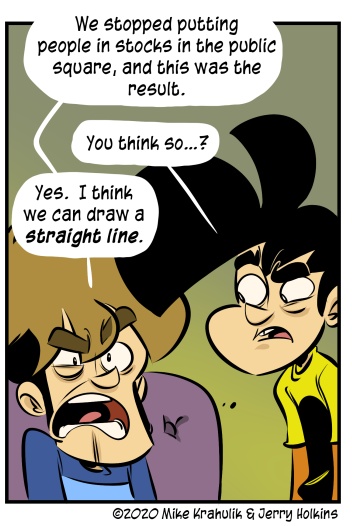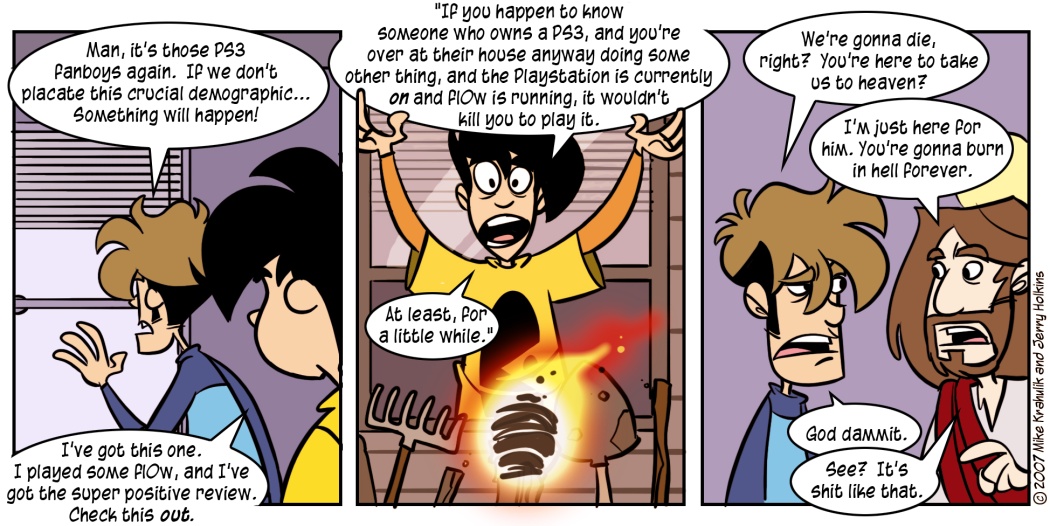I love the first part of a CCG.
Part of it is almost certainly that I tend to have the greatest success in that molten, primordial stage. I don't mind losing if I understand a system - in fact, I really like losing when I know why. Because if I understand how it happened, I don't need to lose that way again. It's actually a great comfort. In wargaming, your "list" is your army essentially - the type and number of units you've brought to the table - and I've changed functional, dangerous, proven lists just to try new things, which is generally a euphemism for Losing. I'll change factions if I win too much, which... I don't know. I don't know what my deal is. I feel like if I got an MRI, the image that came up would just be the eyeroll emoji.
If Brenna wants me to get more than three things from the store, it's understood now - more than twenty years in - that she needs to text them to me. Up to three is fine. Anything beyond three is zero. Something like that happens when the first new set comes out for a card game; I can't really hold it in my head anymore, so I can't lose in the nourishing way I've described above. I hope I can hold on to Legends of Runeterra a little past that this time, because I really like its thoughtful pace. That is to say, I hope it's possible to retain something like that.
I've also seen the strange creatures that true, worshipful adherence to the meta creates plus the rancor that can be generated among people you then have to work intimately with on something of import that has a severe timeline associated with it. Why yes, I am describing real events. One medicine for this is to play against strangers online, with which no intimacy is required or desirable, but even here do these strangers manage to synthesize new torments.
(CW)TB out.



